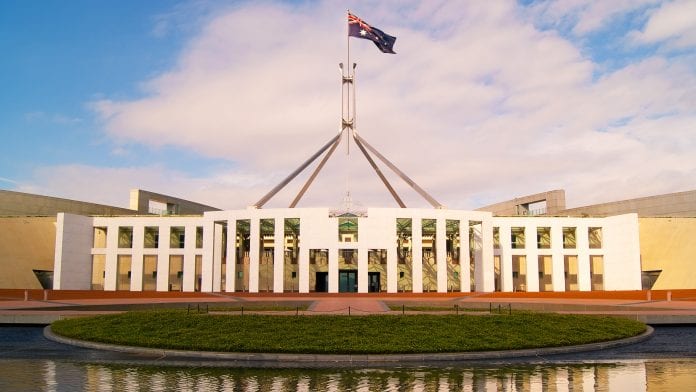
Rosemary Richards of Medicinal Cannabis Industry Australia tells MCN about industry regulation, licensing and the future of Australian cannabis.
Medicinal Cannabis Industry Australia (MCIA), the primary voice of the licensed cannabis sector in Australia, aims to promote a culture of sustainability and responsibility throughout the industry.
MCIA’s Executive Manager Rosemary Richards tells MCN about cannabis industry regulation, licensing and the future of Australian cannabis.
What role does the MCIA play within Australia’s medical cannabis industry?
Medicinal Cannabis Industry Australia is the peak industry organisation and voice for Australia’s licensed medicinal cannabis industry. MCIA seeks to build an industry that enhances wellbeing through facilitating access to quality Australian medical cannabis products for patients, where the industry and its products are built on sound science and underpinned by industry processes that deliver confidence in the sector and sustainable growth.
We support the industry through:
- Working collaboratively with regulators to promote and shape a framework supportive of delivering Australian quality products to Australian patients in a timely and affordable manner;
- Building confidence with patients, doctors, the healthcare sector, community and government through the MCIA Code of Conduct and other technical guidance documents;
- Advocating for key policies and outcomes to support the sector in areas such as patient access, regulatory efficiency, harmonisation and compliance, and product integrity;
- Increasing awareness and knowledge through events such as ACannabis, industry reports
and submissions;
- Networking and information opportunities for members; and
- Identifying and supporting local and global growth opportunities for the industry.
How can industry members work together to improve consumer confidence and ensure medical cannabis in Australia is appropriately regulated? How effective is self-regulation in the industry?
MCIA is supportive of a regulatory framework that enables the development of a robust medicinal cannabis industry in Australia and timely access for patients to a quality controlled, true to label, compliant medicine which is already demonstrating the potential to positively contribute to a broad range of conditions. The current system does require streamlining to ensure it is meeting the objectives of the Narcotic Drugs Act and operating efficiently and effectively.
MCIA has developed a code of conduct as part of its drive toward industry self-regulation. The code promotes high standards of integrity across the medicinal cannabis industry so that patients and healthcare professionals can have confidence in their dealings with the industry, its members and their products.
MCIA believes a strength of the Australian approach is ‘Australian quality medicines’ product underpinned by GMP standards and relevant Therapeutic Goods Orders (TGOs) by the Therapeutic Goods Association.
How could Australia’s medical cannabis licensing policy be further streamlined for the benefit of producers and consumers?
Improving and streamlining the existing legislation and operations of Office of Drug Control will support the facilitation of patient access to timely, cost effective and quality Australian product. There is a need to improve the pathway for licence holders to obtain the relevant permits and other regulatory approvals required to support operations and facilitate the supply of Australian product to the market.
The regulation of medicinal cannabis under a dual ODC/TGA framework assists to provide confidence to doctors and the healthcare sector along with acceptance of medicinal cannabis as a ‘medicine’. Thus, MCIA is focused on working with the government to improve the current system.
What are the main barriers currently facing the cannabis industry in Australia?
There are several barriers limiting patient access including patient affordability, regulatory impacts, reluctance by GPs to prescribe mainly due to lack of education and supply chain issues. These barriers and factors impacting patient access could be reduced or assisted through:
- Facilitating access to Australian product through streamlining and operationalising the regulatory system;
- Building confidence through supporting evidence and transparency, easing the process of research and data gathering to provide patients and medical practitioners with better information;
- Improving affordability, including consideration of subsidising all cannabis medicines on the Pharmaceutical Benefits Scheme (PBS) now that more than 130 conditions have been approved by the TGA for doctors to treat their patients;
- Improved patient access to the Medicare Benefits Schedule (MBS);
- Supporting and funding education programmes for healthcare practitioners, including doctors, nurse practitioners, pharmacists and others; and
- Clarification of issues such as driving regulations and medicinal cannabis use.

What developments do you foresee occurring within the industry in the next couple of years?
The Australian licensed sector has significant production and manufacturing capacity coming online over the next couple of years. This should see Australian patients being able to access Australian quality product in a timely and affordable manner. It is also expected that there will be increased information available for doctors and patients, with the Australian industry having access to leading universities and best-in-class clinical research organisations and with continuing education by medical cannabis companies that are informing doctors on their products.
As such, prescriber understanding will increase and patients will get access to the medicines they need. The Department of Health stated recently that patient numbers have increased by more than 600% in 2019. This is similar to Canada, where more than 1% of the population are medicinal cannabis patients: Australia is on a similar trajectory.
Additionally, it is expected that the industry will be an active exporter. Reputation will be critical to Australian companies and products in local and global markets and we expect the MCIA code, combined with Australia’s GMP requirement, will help build and protect this reputation.
It is expected that the Australian medicinal cannabis industry will be a significant contributor to the global medicinal cannabis marketplace.
Rosemary Richards
Executive Manager
Medicinal Cannabis Industry Australia
This article appeared in the second issue of Medical Cannabis Network which is out now. Click here to get your free subscription today.


















